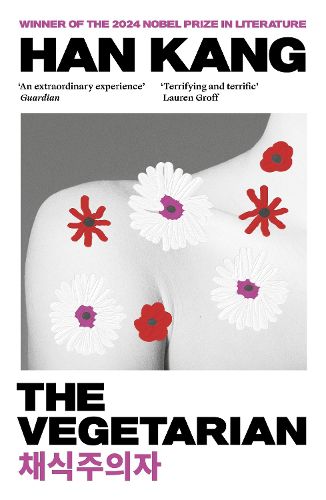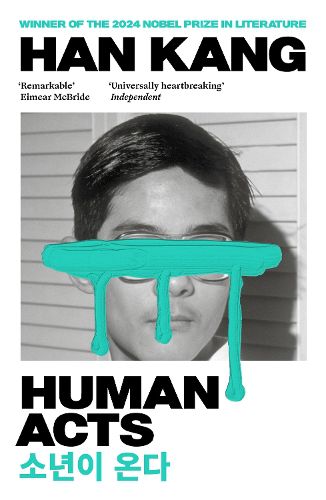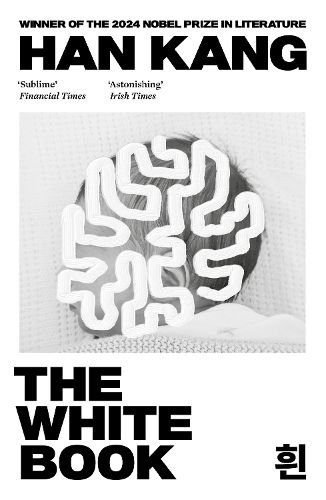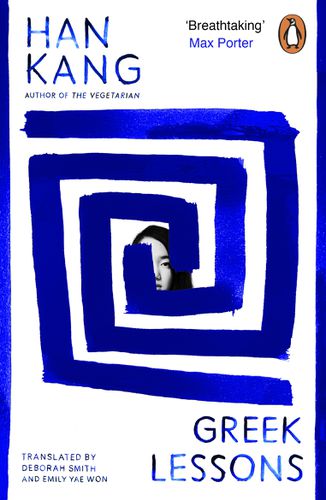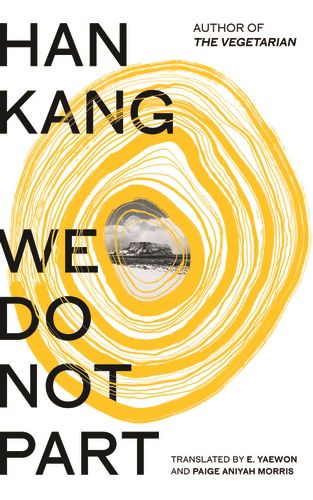The Nobel Prize in Literature 2024 has been awarded to the South Korean author Han Kang, 'for her intense poetic prose that confronts historical traumas and exposes the fragility of human life'.
In her oeuvre, Han Kang confronts historical traumas and invisible sets of rules and, in each of her works, exposes the fragility of human life. She has a unique awareness of the connections between body and soul, the living and the dead, and has become an innovator in contemporary prose with her poetic and experimental style.
HAN KANG'S WORK IN ENGLISH TRANSLATION:
The Vegetarian: A Novel by Han Kang, translated by Deborah Smith
Yeong-hye and her husband are ordinary people. He is an office worker with moderate ambitions and mild manners; she is an uninspired but dutiful wife. The acceptable flatline of their marriage is interrupted when Yeong-hye, seeking a more ‘plant-like’ existence, decides to become a vegetarian, prompted by grotesque recurring nightmares.
In South Korea, where vegetarianism is almost unheard-of and societal mores are strictly obeyed, Yeong-hye’s decision is a shocking act of subversion. Her passive rebellion manifests in ever more bizarre and frightening forms, leading her bland husband to self-justified acts of sexual sadism. His cruelties drive her towards attempted suicide and hospitalisation. She unknowingly captivates her sister’s husband, a video artist. She becomes the focus of his increasingly erotic and unhinged artworks, while spiralling further and further into her fantasies of abandoning her fleshly prison and becoming – impossibly, ecstatically – a tree.
Human Acts by Han Kang, translated by Deborah Smith
Gwangju, South Korea, 1980. In the wake of a viciously suppressed student uprising, a boy searches for his friend’s corpse, a consciousness searches for its abandoned body, and a brutalised country searches for a voice. In a sequence of interconnected chapters the victims and the bereaved encounter censorship, denial, forgiveness and the echoing agony of the original trauma.
Human Acts is a universal book, utterly modern and profoundly timeless. Already a controversial bestseller and award-winning book in Korea, it confirms Han Kang as a writer of immense importance.
The White Book by Han Kang, translated by Deborah Smith
The White Book is a meditation on colour, beginning with a list of white things. It is a book about mourning, rebirth and the tenacity of the human spirit. It is a stunning investigation of the fragility, beauty and strangeness of life.
Greek Lessons by Han Kang, translated by Deborah Smith & Emily Yae Won
In a classroom in Seoul, a young woman watches her Greek language teacher at the blackboard. She tries to speak but has lost her voice. Her teacher finds himself drawn to the silent woman, for day by day he is losing his sight.
Soon they discover a deeper pain binds them together. For her, in the space of just a few months, she has lost both her mother and the custody battle for her nine-year-old son. For him, it's the pain of growing up between Korea and Germany, being torn between two cultures and languages.
We Do Not Part by Han Kang, translated by e. yaewon & Paige Aniyah Morris
One morning in December, Kyungha receives a message from her friend Inseon saying she has been hospitalized in Seoul and asking that Kyungha join her urgently. The two women have last seen each other over a year before, on Jeju Island, where Inseon lives and where, two days before this reunion, she has injured herself chopping wood. Airlifted to Seoul for an operation, Inseon has had to leave behind her pet bird, which will quickly die unless it receives food. Bedridden, she begs Kyungha to take the first plane to Jeju to save the animal.
Unfortunately, a snowstorm hits the island when Kyungha arrives. She must reach Inseon's house at all costs, but the icy wind and snow squalls slow her down as night begins to fall. She wonders if she will arrive in time to save Inseon's bird – or even survive the terrible cold that envelops her with every step. Lost in a world of snow, she doesn't yet suspect the vertiginous plunge into the darkness which awaits her at her friend's house.
There, the long-buried story of Inseon's family surges into light, in dreams and memories passed from mother to daughter, and in the archive painstakingly assembled at the house, documenting a terrible massacre on the island of 30,000 civilians, murdered in 1948-9.
We Do Not Part is due for publication February 2025
Watch the announcement of the Nobel Prize in Literature 2024 to Han Kang, presented by Mats Malm, Permanent Secretary of the Swedish Academy; and following the announcement, Anna-Karin Palm, co-opted member of the Nobel Committee for Literature, was interviewed by the Nobel Prize Museum’s Carin Klaesson about the 2024 Nobel Prize in Literature.


